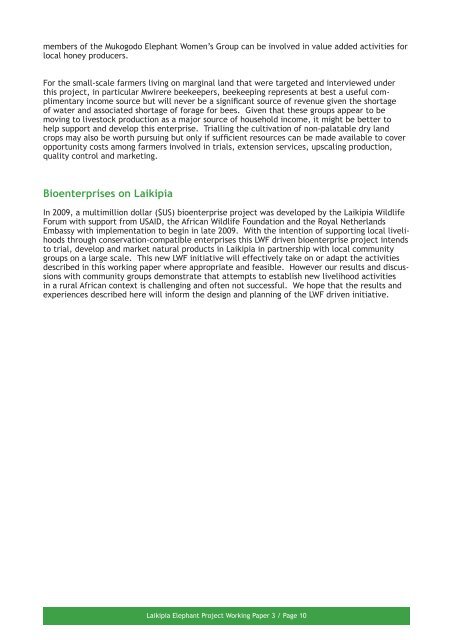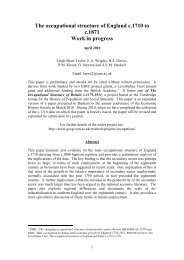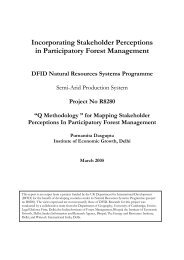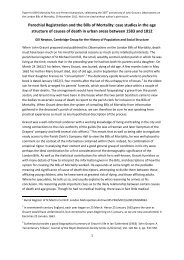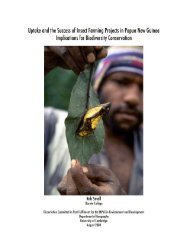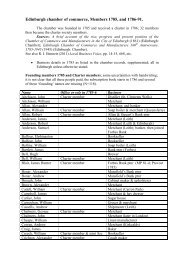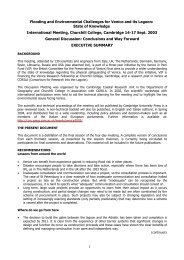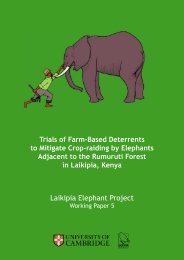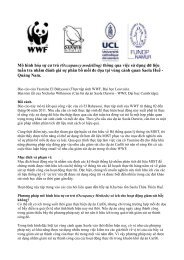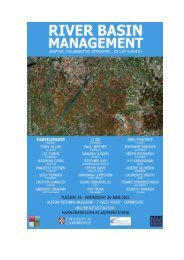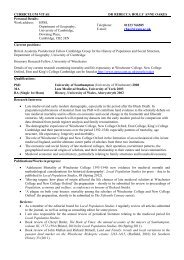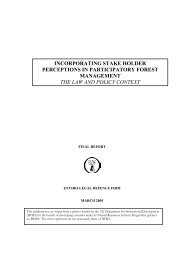An Assessment of Elephant-Compatible Livelihoods - University of ...
An Assessment of Elephant-Compatible Livelihoods - University of ...
An Assessment of Elephant-Compatible Livelihoods - University of ...
Create successful ePaper yourself
Turn your PDF publications into a flip-book with our unique Google optimized e-Paper software.
members <strong>of</strong> the Mukogodo <strong>Elephant</strong> Women’s Group can be involved in value added activities for<br />
local honey producers.<br />
For the small-scale farmers living on marginal land that were targeted and interviewed under<br />
this project, in particular Mwirere beekeepers, beekeeping represents at best a useful complimentary<br />
income source but will never be a significant source <strong>of</strong> revenue given the shortage<br />
<strong>of</strong> water and associated shortage <strong>of</strong> forage for bees. Given that these groups appear to be<br />
moving to livestock production as a major source <strong>of</strong> household income, it might be better to<br />
help support and develop this enterprise. Trialling the cultivation <strong>of</strong> non-palatable dry land<br />
crops may also be worth pursuing but only if sufficient resources can be made available to cover<br />
opportunity costs among farmers involved in trials, extension services, upscaling production,<br />
quality control and marketing.<br />
Bioenterprises on Laikipia<br />
In 2009, a multimillion dollar ($US) bioenterprise project was developed by the Laikipia Wildlife<br />
Forum with support from USAID, the African Wildlife Foundation and the Royal Netherlands<br />
Embassy with implementation to begin in late 2009. With the intention <strong>of</strong> supporting local livelihoods<br />
through conservation-compatible enterprises this LWF driven bioenterprise project intends<br />
to trial, develop and market natural products in Laikipia in partnership with local community<br />
groups on a large scale. This new LWF initiative will effectively take on or adapt the activities<br />
described in this working paper where appropriate and feasible. However our results and discussions<br />
with community groups demonstrate that attempts to establish new livelihood activities<br />
in a rural African context is challenging and <strong>of</strong>ten not successful. We hope that the results and<br />
experiences described here will inform the design and planning <strong>of</strong> the LWF driven initiative.<br />
Laikipia <strong>Elephant</strong> Project Working Paper 3 / Page 10


